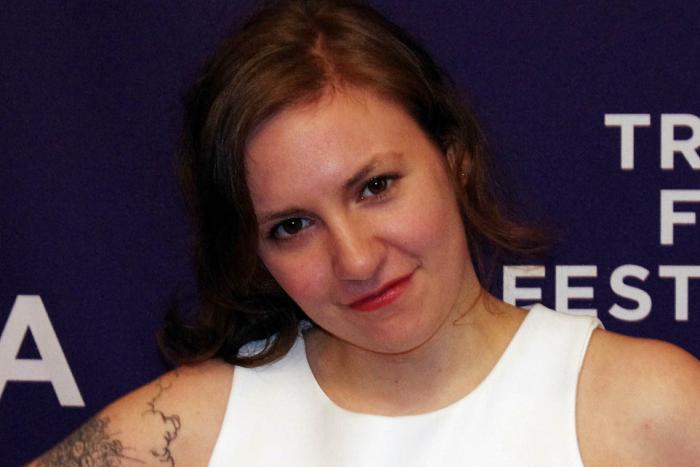Shelf Esteem is a weekly measure of the regard editors, writers, and other word lovers, have for the books in their home. This week we visit Kirsten McCrea, founder and editorial director of Papirmasse, a $5 monthly art and literature broadsheet magazine. She lives in Toronto with her fiancé, fellow artist, and publisher Jp King. Their books mingle on shared shelves. Kirsten recently wrote Feist’s name on an oversized novelty cheque for the Polaris Prize. As told to Emily M. Keeler.
One of my main goals this year was to read a lot more. I feel like I don’t really get to read enough, but I don’t know where that threshold is. I thought maybe if I actually had a sense of how much I was reading that would give me some context for the feeling. So I set a goal of reading 30 books this year, and I’ve read 25. So it’s gonna happen! Which is great. When my fiancé Jp moved in I was so happy, in part because he has an amazing book collection. Though there was this really depressing day where we did the math and realized that if you only read twenty books a year, for your whole life, you’re only really going to read—well, we’d only each be able to read like, half the books that are in this house. Which really sucks. It’s depressing.
It’s funny, up until I was 15 I really wanted to be a writer. I really liked M.E. Kerr. I was really into reading the Nancy Drew series when I was younger, until I found M.E, Kerr’s books. She’s way more of a bad ass. She writes about going to catholic school, and making dart boards out of the teacher’s faces. This year I thought I would revisit her work, and I looked her up. And it turned out she was this really prominent lesbian writer, who founded a certain offshoot of lesbian pulp fiction. And I was like, “Oh, no wonder she was so much more interesting than other young adult writers.” She’s got this subversive quality to her. I was also really obsessed with Lois Lowry. She wrote an autobiography, and I read it. She talks about how her first story was published when she was 12-years-old. I remember being 12 and having this overwhelming sense of defeat because I hadn’t published anything. But then art just really took over for me. It’s hard to do multiple, disparate things, so I don’t write anymore.
Since then, art books have been really important to me. Because the kind of art that I like, it feels like it’s really big in the States. It’s really big in California, and a little bit in New York, but there aren’t really venues for it in Canada. So books and the Internet are my main access point to a lot of that art. For a long time I felt like I had to spend a lot of time looking at other artist’s work for inspiration. I’m only just now at a point where I don’t look at other people’s work. I’m currently consciously trying not to, not as much. Which is tough, given that I’m presently going over this year’s submissions for Papirmasse.
I felt really poor for a long time, and art books are really expensive. They’re like, fifty bucks a piece. But Jp had a job that paid decently for a while, so he managed to stock up on a great collection, though maybe half of these are mine. A lot of them were gifts. Art books are kind of the obvious choice for a present to give an artist. Which I’m totally fine with. Books are the best presents.
I grew up in Edmonton, and I was, at age 18, in Montreal for the first time. I saw David Choe’s art book in Urban Outfitters, and I had no idea what Urban Outfitters even was, at the time. I thought the book was really cool, but it was the end of my trip and I was broke. Twenty bucks was out of my budget. I tried to find it in Edmonton and couldn’t. I thought that his was the best art book I ever saw! Why didn’t I buy it? Eventually a really nice friend of mine tracked it down from some comic book store in San Francisco and bought it for me. So David Choe’s book was really influential, and I view him as being pretty eye-opening. Through his website he had links to all these other artists and I basically discovered all of the work that was most influential to me through him, through this book. But at the same time, as I’ve grown older, I have this fear that he might just be this total misogynistic prick. I don’t like his work nearly as much as I used to, but I have this real feeling of... I don’t know. I just really appreciate what he did for me as an artist, this world he illuminated.
Tastes change. Which is great. I’m really happy that I have access to Jp’s book collection. He has a ton of really weird and random small publishing stuff. Like books that are made in small runs, totally off the radar. I just didn’t know where to look for that stuff. Jp has certain tactics he’s used to root out good stuff. I think he has this universe where Ben Marcus is the sun. Any time I read a favourite book of his, Ben Marcus wrote the introduction, or the person thanks Ben Marcus in the acknowledgments, or Ben Marcus has a blurb on the back. There’s always some sort of Ben Marcus relation. And that makes a lot of sense; if you’re going to veer off the path you need to still have some sort of a guide.
I started Papirmasse when I graduated from art school and accidentally moved back to Edmonton. Which happens to a lot more people than you would expect. I got the idea to do this broadsheet art subscription while I was working in a restaurant, looking at these prints on the walls that were $2,000 each. I was thinking, “Oh, it’d be so great if you could remove the hand of the artist and use machines instead to lower the price of art.” And I looked online, and Shepard Fairey does that. He releases an offset print every month for $45 each. And I was, like, I’ll just make it $5. And if you’re going to have art on one side, you’re going to have this empty backside. Why not fill it with something? Writing seemed like a really obvious choice.
In the first year I used a lot of my own writing, or published interviews. And then in the second year, when we made it a different artist and writer every month I was publishing a lot of different writing, but it felt a little bit random. This last year I’ve been spending a lot of time interrogating my own taste and thinking about why I like certain things and why I don’t, and trying to curate the selection of writing more specifically. We want to have a certain degree of variety. I was talking with Rick my business partner, and he was saying that eclecticism is a myth. Nothing is actually eclectic, it’s only eclectic within a certain sphere.
So, I’m still trying to figure things out. The nice thing about fiction is that sometimes it feels a little bit more universal, especially when it deals with emotions or situations that people can relate to, unlike, say, more specifically, critical writing. I’m still surprised that I’m a literary editor.






